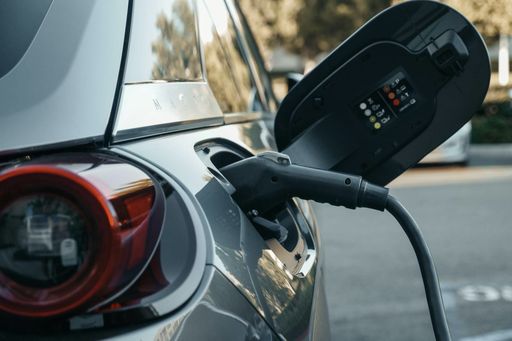Riyadh's multi-billion EV dream risks crashing into reality
Riyadh has invested billions to try to establish itself as a hub for electric vehicles, but faces obstacles and tough competition.

Challenges in Becoming an EV Hub
Riyadh, the capital of Saudi Arabia, has ambitious plans to become a hub for electric vehicles (EVs) and reduce reliance on oil. However, it faces several hurdles including a lack of infrastructure, talent, and raw materials. To achieve its goals, Saudi Arabia has invested heavily in U.S.-based Lucid Motors, launched its own brand called Ceer, and built an EV metals plant.
The Public Investment Fund (PIF), Saudi Arabia's sovereign wealth fund, aims to produce 500,000 EVs annually by 2030. However, the kingdom's sole auto factory, which opened in 2023, has so far only reassembled around 800 vehicles based on kits supplied from Arizona.
Competition and Past Failures
Saudi Arabia has struggled in the past to attract automotive manufacturing. Back in 2019, Japan's Toyota declined a deal, citing high labor costs, a lack of local suppliers, and a small local market. Analysts point out that the competition in the EV industry is fierce, with established manufacturing powerhouses and supply chains dominating the market.
Gaurav Batra, EY's global advanced manufacturing and mobility analyst, highlighted the challenges ahead for Saudi Arabia's EV plans. He emphasized that multiple factors need to come together for the industry to thrive and succeed.
Challenges in Local Industry Development
One of the major difficulties for Saudi Arabia is attracting producers of auto-components. Currently, there is no significant local industry to supply these components, making it a challenge to attract manufacturers. The domestic EV manufacturer Ceer, a joint venture between the PIF and Taiwanese company Foxconn, plans to launch a car by 2025 but has yet to build its factory.
Analysts remain skeptical about the kingdom's production targets. Tatiana Hristova, an expert at S&P Global Mobility, expressed doubts about the high local output and the ability to meet export demands. She believes it will take time for the industry to fully develop.
Saudi Arabia's Sustainability Efforts
Saudi Arabia is keen to improve its sustainability credentials and reduce reliance on fossil fuels. The country has given prominence to Lucid cars at state conferences and has agreed to purchase up to 100,000 vehicles from the company over the next decade.
However, to achieve its goal of becoming a center for manufacturing and supplying EV batteries, Saudi Arabia needs access to raw materials, particularly lithium. While the kingdom aims to produce lithium domestically, no reserves have been announced yet. Saudi Arabia is exploring options to secure minerals abroad through joint ventures and partnerships.


